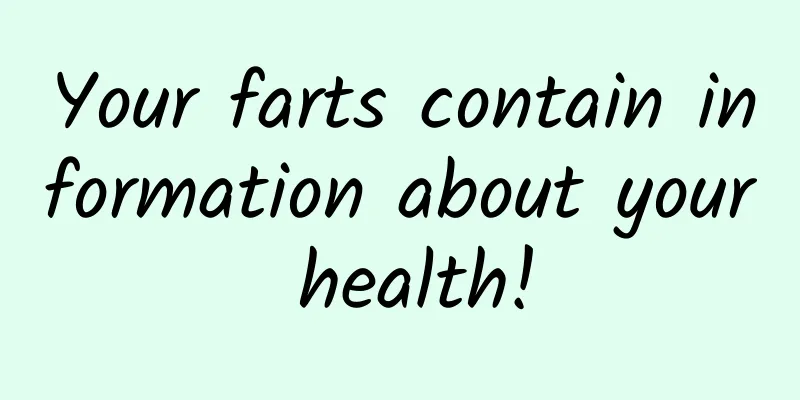Is Coenzyme Q10 Really That Powerful?

|
Since the discovery of Coenzyme Q10, scholars have reported a lot on its physiological effects and application research, including its role in aerobic metabolism, antioxidant effect, lowering blood lipids, improving body immunity, anti-tumor effect, etc., but many functions are still under study and discussion. As a health food, there are only two functions of Coenzyme Q10 that are allowed to be claimed: antioxidant and immune enhancement. Coenzyme Q10 (Co Q10) was discovered in 1958. It is a quinone compound, also known as ubiquinone. It exists naturally in the human body, with a total content of about 500 to 1500 mg, mainly distributed in organs such as the heart, liver, and kidneys. The human body can synthesize Coenzyme Q10, but the synthesis process is complex and is affected by factors such as genes, age, nutrition and drugs. When a person is born, the Coenzyme Q10 content in the body is not high, reaching a peak at about 20 years old. After the age of 25, the synthesis ability gradually decreases, and the Coenzyme Q10 content in various tissues and organs also gradually decreases. The Coenzyme Q10 content in the myocardium of a 77-year-old person is more than 50% lower than that of a 20-year-old person. The human body also ingests coenzyme Q10 through diet. The content of coenzyme Q10 is higher in animal foods, such as heart, liver, and kidney, followed by sardines, saury, beef, pork, etc. Some plant foods also contain a small amount of coenzyme Q10, such as soybeans, peanuts, sesame seeds, pistachios, cauliflower, broccoli, oranges, and strawberries. It is estimated that the daily intake of coenzyme Q10 through diet is about 2 to 5 mg, which is a very small amount. Studies on the role of coenzyme Q10 in the auxiliary treatment of heart disease have shown that it is a promoter and activator of cellular aerobic respiration and energy metabolism. When coenzyme Q10 is deficient, the heart is most affected. When the content is lower than 60% of normal people, it can cause palpitations, chest tightness, and fatigue; when it is lower than 40%, it can cause myocardial ischemia and coronary heart disease; when it is lower than 25%, the heart will stop beating and even cause sudden death. Therefore, coenzyme Q10 is mainly used for the auxiliary treatment of heart disease, involving two aspects: 1. Heart failure: In the past 20 years, a large amount of clinical evidence has been found that coenzyme Q10 is effective in treating heart failure. The most powerful one is a prospective study published in 2014 that lasted more than 10 years. The study used a randomized double-blind design to give 420 patients with heart failure coenzyme Q10, 100 mg/day, 3 times a day. Compared with the standard treatment group that received a placebo, the coenzyme Q10 treatment group had significant improvements in heart failure symptoms and cardiac function classification, and the incidence of serious adverse cardiovascular events was also significantly reduced. The 2018 edition of the "Guidelines for the Diagnosis and Treatment of Heart Failure in China" recommends coenzyme Q10 as an auxiliary therapy for improving cardiac function. 2. Viral myocarditis: Domestic research reports that observed cardiac function indicators in 82 pediatric patients with viral myocarditis and myocardial enzyme indicators in 98 adolescent patients with viral myocarditis, both showed that supplementing coenzyme Q10 has a protective effect on the myocardium. In the "Chinese Expert Consensus on the Diagnosis and Treatment of Fulminant Myocarditis in Adults" released in 2017, coenzyme Q10 was recommended as an auxiliary therapy to improve cardiac function. Coenzyme Q10 needs to be used under the guidance of a doctor. The general dosage is 90 mg per day, and the maximum daily dose can reach 200-500 mg. In 2006, my country approved the use of coenzyme Q10 in health food. In the "Health Food Raw Material Catalog Coenzyme Q10" implemented on March 1, 2021, coenzyme Q10 is allowed to claim two functions as a health food: antioxidant and immune-enhancing. The recommended daily dosage is 30 to 50 mg, which is suitable for adults, but not for children, pregnant women, nursing mothers and people with allergies. Coenzyme Q10 can enhance the body's nonspecific immune response, as well as specific immune response. When people are in a sub-healthy state, appropriate supplementation of coenzyme Q10 can improve immunity and have a health-care effect. Coenzyme Q10 has two structures: reduced and oxidized. Most of the coenzyme Q10 in the human body exists in the reduced form, which has an antioxidant effect and is considered a lipid antioxidant and free radical scavenger. The antioxidant effect of coenzyme Q10 is similar to that of vitamin E, and it is more effective than carotene and lycopene in preventing the oxidation of low-density lipoprotein. Athletes, sports experts or ordinary adults may produce a large number of free radicals in myocardial cells after exercise or fatigue. Supplementing coenzyme Q10 can scavenge free radicals, protect the heart, relieve fatigue, and enhance the vitality of the body. Coenzyme Q10 in my country is divided into two categories: medicine and health food. Medicines need to have a "national medicine standard", are used as auxiliary treatments, and are used in large doses and need to be used under the guidance of a doctor; coenzyme Q10 as a health food is an oral dosage form, marked with a "national food standard", and is taken in small doses. The recommended daily dosage is 30 to 50 mg. |
<<: 7 Myths and Facts About Your Thyroid
>>: 6 questions about sleeping pills for the elderly
Recommend
What causes left ovary pain?
Nowadays, many women have the habit of drinking, ...
Nursing measures for cervical resection surgery
Cervical resection is a relatively major operatio...
Brown blood in the lower body
I don’t know if you have noticed. With the libera...
What lip shape is good for girls
Women's lips are very sexy. For women who lov...
What should women do if their breasts sag?
Compared with men, women's body structure is ...
Which department should I go to for IUD removal?
The IUD, which we also call the ring, is an effec...
Slight bleeding in pregnant women
What is the situation of mild bleeding in pregnan...
Kidney disease prognosis secrets: 5 important instructions from doctors
1. Strictly control blood pressure and blood suga...
What to do if breast hyperplasia occurs during lactation
The breast is a very important reproductive organ...
What are the benefits of eating kiwi fruit during early pregnancy?
Women in their early stages of pregnancy pay spec...
Don’t panic if you have polydactyly or syndactyly. Find out first and then seek medical attention immediately.
When the baby is born, parents find that the baby...
What is the best time to sweat during the first month of confinement?
Most of the time, a woman's body is still qui...
Causes of genital warts in pregnant women
Genital warts are a disease that grows in the pri...
What should girls do if their menstrual period is long?
Seven days a month is already an unbearable limit...
12 delicious foods to avoid during menstruation
If you don't want to be troubled by various m...









